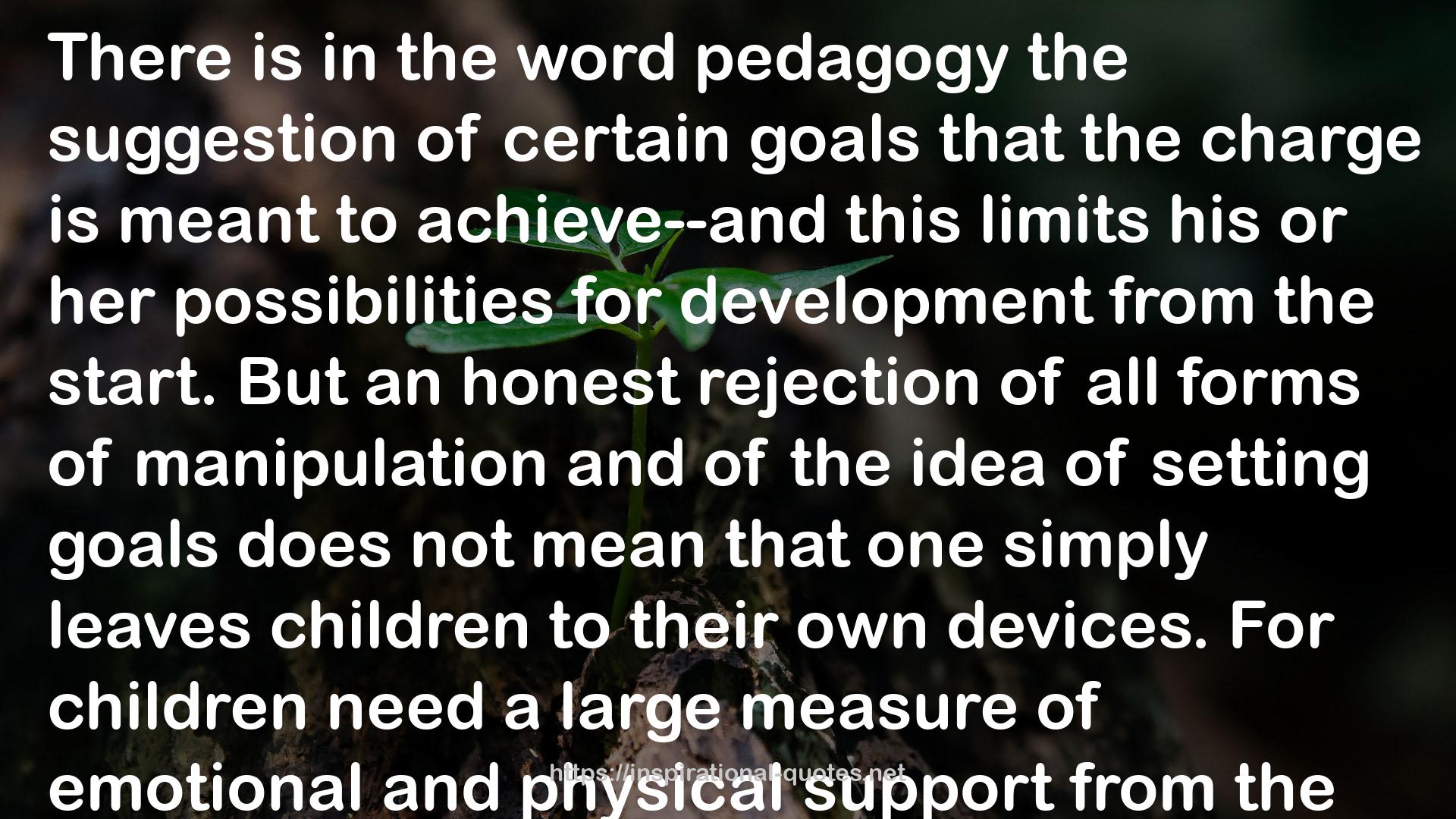" There is in the word pedagogy the suggestion of certain goals that the charge is meant to achieve--and this limits his or her possibilities for development from the start. But an honest rejection of all forms of manipulation and of the idea of setting goals does not mean that one simply leaves children to their own devices. For children need a large measure of emotional and physical support from the adult. This support must include the following elements if they are to develop their full potential:
1. Respect for the child
2. Respect for his rights
3. Tolerance for his feelings
4. Willingness to learn from his behavior:
a. About the nature of the individual child
b. About the child in the parents themselves
c. About the nature of emotional life, which can be observed much more clearly in the child than in the adult because the child can experience his feelings much more intensely and, optimally, more undisguisedly than an adult
There is evidence among the younger generation that this kind of willingness is possible even for people who were themselves victims of child-rearing. "
― , For Your Own Good: Hidden Cruelty in Child-Rearing and the Roots of Violence
